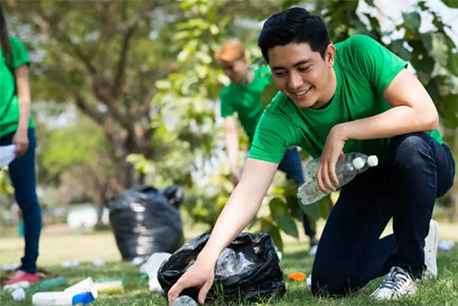Outdoor Service for Your Recovery
As part of our comprehensive treatment program for men, we help teach life skills through outdoor service projects. We believe in the power of service to strengthen a person’s recovery from addiction and have seen service help our clients in a number of ways. Here is a look at some of the many ways that outdoor service projects can strengthen a person’s recovery from substance addiction.
Discover a new passion.
Many people find that service allows them to discover a new passion in life. Through doing service in a public park, at an animal shelter, at a food pantry, or at some other non-profit organization, you might come in close contact with a cause that you are truly passionate about. Then, throughout your recovery, you can continue dedicating your time to something that helps your community and that you find purpose in. The more time you spend doing something uplifting and engaging in your recovery, the more time you will be spending away from cravings and idleness—two major causes of relapse during recovery.

Find new purpose.
Those who exercise regularly report increased feelings of self-confidence and optimism, as well as decreased feelings of depression of anxiety. (It doesn’t hurt that exercise tends to improve your appearance as well, resulting in a stronger self image.) This benefit of exercise can prove vital at a time when confidence levels might be at an all-time low.
Strengthen your mental health.
Strong mental health and successful recovery from addiction go hand in hand. According to a 2013 health and volunteering study by UnitedHealth Group, people who volunteer have less stress and report feeling better both mentally and emotionally. Ninety-four percent of people surveyed for the study responded that volunteering improves their mood, while seventy-eight percent reported that it actually lowers their stress levels. In addition, eight percent of people who volunteer reported that they feel like they have more control over their health. People who volunteer regularly are also more likely to report that they feel calm and peaceful most of the time. Overall, these findings indicate that doing service has some powerful benefits to offer for mental health. And the stronger your mental health is as you navigate your recovery, the more likely you are to overcome cravings, stress triggers, and more.
Look outward.
Isolation can be a major driving force in addiction. When a person feels isolated, they use; and after they use, they feel even more isolated. Service forces you to look outward and consider needs outside of your own, therefore helping you to overcome isolation. Doing service can even help you cultivate valuable skills that will help you as you interact with your support system during recovery.
